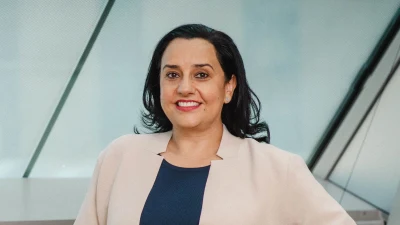PGIM Real Estate introduces $750m Aussie debt fund



PGIM’s real estate investment management business has launched its first Australian real estate debt strategy.
The asset manager has completed the first close of the strategy with approximately $300 million and confirmed advanced commitments from several institutional investors which should see it exceed $600 million in the upcoming months.
It is on track to achieve its $750 million target from investors, the firm reported, though a specific time frame was not stated.
The fund, which is PGIM Real Estate’s first co-mingled Australian real estate debt strategy, seeks to offer strong risk-adjusted returns and downside protection to investors. It has a focus on senior development loans, gap financing, and financing of transitional Australian real estate assets.
PGIM Real Estate’s strategy is led by Steven Bulloch, head of Australia and head of Asia-Pacific real estate debt, alongside Emma Jack, head of debt portfolio management in Asia-Pacific at PGIM Real Estate.
Bulloch described the long-term opportunities in Australian real estate debt as “very compelling” for investors currently, underpinned by structural and cyclical factors.
“The real estate market in Australia has been one of the most resilient globally thanks to its strong economic fundamentals, population growth and limited supply. The investment case for real estate debt is further bolstered by the peak interest rates resulting in strong risk-adjusted returns,” he said.
“We anticipate a further shift from traditional bank lenders to alternative capital sources. Pressure on valuations and the upcoming wave of maturities for loans mostly held by banks are set to create a meaningful funding gap, bringing opportunities for debt strategies like ours.”
Private credit continues to grow stronger, with the Australian private credit market already seeing a 23 per cent compound annual growth rate from 2015 to 2023, Regal Partners recently reported.
The absolute return for a debt investment is increasingly attractive, particularly on a risk-adjusted basis, as base interest rates have risen substantially across the globe. Bulloch added: “Many of our global institutional investors are seeing this as a good entry point to diversify their portfolios with real estate debt.
“With the strength of our global platform and a proven investment track record in Australia, PGIM Real Estate is well positioned to meet the projected demand for real estate debt. We expect to deploy in excess of US$1 billion over the next few years in Australia, across both traditional core senior debt and higher-yield debt.”
PGIM’s US$206 billion real estate investment and financing arm has expanded its local presence in Australia since 2011 and built a suite of over 50 debt and equity investments in Australia, with a total loan and transaction volume above $5 billion to date.
Recommended for you
Selfwealth has provided an update on the status of its scheme implementation deed with Bell Financial Group as well as whether rival bidder Svava remains in the picture.
Magellan Financial Group has reported its first half FY25 results while appointing a new chief financial officer and promoting Sophia Rahmani to chief executive.
Schroders Australia has launched two active ETFs and plans to further expand its listed range over the year ahead.
Platform Netwealth has reported its financial results for the first half of FY25, reporting an 80 per cent increase in net flows, with its CEO viewing a “huge opportunity” from private assets.















